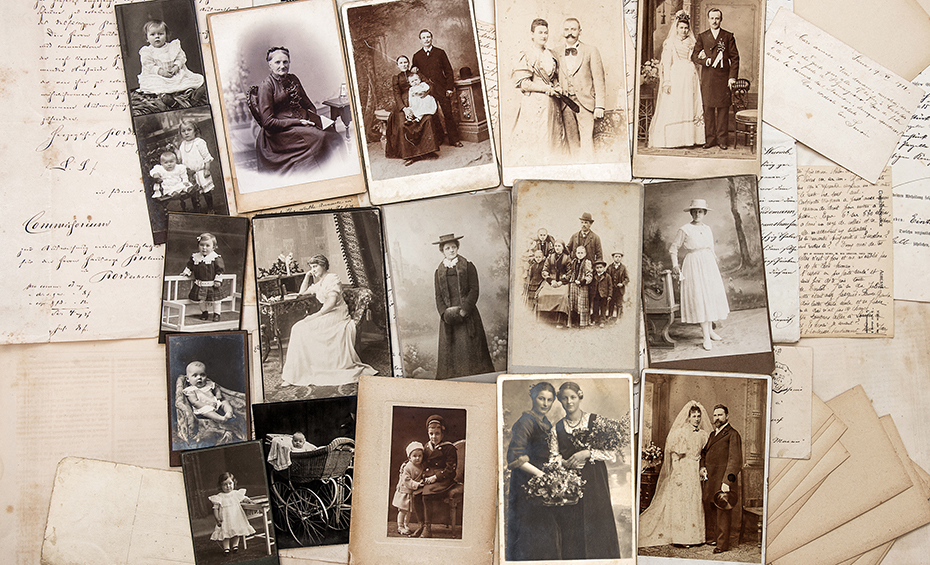POST
April 15 , 2022
Plan a Trip to Find Your Roots
5 Steps for Success

If there’s anything this new decade has taught us, it’s the value of human connection. What do you know about the story of your own family? Maybe now is the time to follow your roots and deepen the connection with a part of yourself and your ancestors.
The internet and home ancestry DNA kits are powerful tools you can use to start your genealogical quest, but why stop there? Take your journey a step farther and touch the ground your ancestors came from. You can explore the region they came from, eat the same foods, and find out what their lives would have been like. Traveling as a family to get in touch with your roots is an excellent way to make lasting memories that are deeply personal and meaningful. It’s no wonder ancestry travel is a top trend these days!
When digging to uncover your roots, you can’t be sure what you will (or won’t) be able to find, but these five steps will help you get as close as possible to where your great-great-greats once stood:

Photo by Helena Lopes on Unsplash
1. Do some detective work at home, before you leave.
Some people already know they have cousins in Calabria they’ve never met, or they have family lore that tells of an ancestor who came over from Ireland on a boat, while others have only recently sent out a DNA swab to find out the mystery of their ethnic makeup. There are many ways to take that first step into finding your roots. You can use one of the online databases to put in what you know and connect to others, get your DNA tested, or simply talk to the elders in your family. Older relatives may have stories to pass down that can help you fill in the family tree with some names and occupations.
Once you have a hometown pinpointed, you can begin researching where to browse the civil and church records for that location. The Family History Library Catalog is a great resource for finding the location of church and civil records – when you’ve put in the town name, you may even be able to see the microfilms online! If the films are not available online or to order, then you’ll want to send an email to the church or town hall in your ancestral hometown. They might be able to help you if you give them a name to look up.

Photo by Maksym Kaharlytskyi on Unsplash
2. Decide what kind of trip you want.
Do you want a trip that is focused more on connecting with the general history of your ancestral home (heritage trip) or focused on finding your actual family ties (genealogical trip)? When traveling with others, it can be a good idea to have a balance of time for researching local records, as well as plenty of time for getting to know the culture and interacting with the people.
For research-intensive trips, we can even help you find a local genealogist or translator to help you when going through old archives in other languages. Heritage tourism in Ireland and Scotland is big, and the luxurious Balmoral Hotel in Edinburgh even has a “Tartan Butler” who can help guests trace their Scottish lineage and connect them to their clan and tartan design.
To allow time for getting lost and immersing yourself in the culture of your ancestors, you could spend a few days to soak up the atmosphere, visit local and regional heritage museums, such as Bunratty Castle and Folk Park, and have private tours or a cooking class in a local family home. In some places, there may not be as many hotel options, so smaller, family-run hotels and B&Bs can be a good way to have a more intimate connection to the area.

Photo by Nils Nedel on Unsplash
3. Pack your documents and plan ahead.
What if you meet a relative you never knew you had? You’ll definitely want to show them pictures of your ancestors who immigrated, so bring those along. You also want to make sure you have the necessary documents to make the most of your search through the archives. Bring family trees or ancestor charts, old family photographs, marriage and birth or death certificates, baptismal records, etc. Of course, you should never bring the precious originals – have copies or scans on your iPad or mobile phone.
Also don’t forget that learning a few key words and phrases in the language of your ancestors can go a long way. You can bring a phrase book, and you also may want to create a list of genealogy-related terms. How do you say "my great grandparents" en français?
Another important detail is to plan in advance when you want to go to places like libraries, church archive offices and research centers. It may be necessary to make an appointment, and these places can often have limited hours, so check ahead. It’s also not uncommon to pay admission, and then you’ll need some small change to pay for any copies you make. And if driving yourself, make sure you know how to get there as it could be hard to find especially in a large city.

Photo by Roman Kraft on Unsplash
4. Be prepared to capture new memories.
At this point you understand the importance of archives and records, so you’ll want to be sure you properly record and preserve this trip for posterity. Of course, you can’t forget to capture plenty of images to take back home and share with family and future generations. You might even have some new names or old pictures to go on your family tree.
It’s also a great idea to keep a travel journal, where you can take notes about what you see and do each day, and even your feelings about experiences. What did you eat, what kind of people did you meet, what place did you feel a connection to? You don’t want to find later that you can’t remember the name of that great little pub you found in the town where great-great-great grandpa may once have been the barber.

Photo by Thought Catalog on Unsplash
5. Remember to go with the flow.
With genealogy research, you never know what surprises you might find. You may have seen “Finding Your Roots” or “Who Do You Think You Are?” (although the revelations on those TV shows are the result of hours of research by experts). If you’re looking for long-lost relatives or family treasures, you may have to adjust your expectations. It could be frustrating combing through archives and not finding the name you’re hoping to find, or maybe you discover a family secret. But just the act of being there, of retracing your fate over oceans and back through history, can be a powerful feeling. You might feel a companionship with the ancestor who left and wonder why they ever left in the first place. You might feel that you have somehow located and pegged a missing piece of yourself. Or, you might just have a fantastic trip in a foreign country no matter what you find!

Photo by Sabrina Mazzeo on Unsplash
If you do the ancestry DNA test, you could find results and percentages of your genetic makeup that really surprise you! One interesting thing about this new trend is that it could open your eyes to places you never thought about going before, and we all get a chance to see just how beautifully mixed up and diverse we really are.
You can read about Mary Bai’s journey to trace her family’s Sicilian heritage here